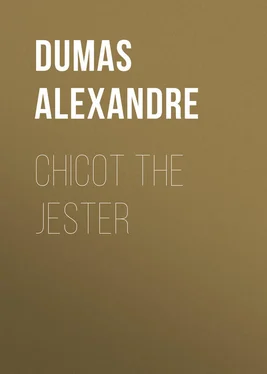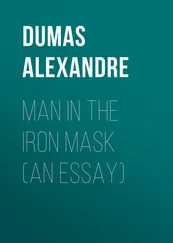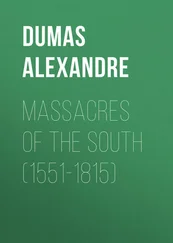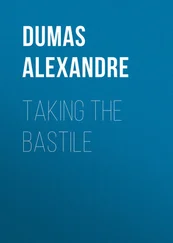Alexandre Dumas - Chicot the Jester
Здесь есть возможность читать онлайн «Alexandre Dumas - Chicot the Jester» — ознакомительный отрывок электронной книги совершенно бесплатно, а после прочтения отрывка купить полную версию. В некоторых случаях можно слушать аудио, скачать через торрент в формате fb2 и присутствует краткое содержание. Жанр: literature_19, foreign_antique, foreign_prose, на английском языке. Описание произведения, (предисловие) а так же отзывы посетителей доступны на портале библиотеки ЛибКат.
- Название:Chicot the Jester
- Автор:
- Жанр:
- Год:неизвестен
- ISBN:нет данных
- Рейтинг книги:5 / 5. Голосов: 1
-
Избранное:Добавить в избранное
- Отзывы:
-
Ваша оценка:
- 100
- 1
- 2
- 3
- 4
- 5
Chicot the Jester: краткое содержание, описание и аннотация
Предлагаем к чтению аннотацию, описание, краткое содержание или предисловие (зависит от того, что написал сам автор книги «Chicot the Jester»). Если вы не нашли необходимую информацию о книге — напишите в комментариях, мы постараемся отыскать её.
Chicot the Jester — читать онлайн ознакомительный отрывок
Ниже представлен текст книги, разбитый по страницам. Система сохранения места последней прочитанной страницы, позволяет с удобством читать онлайн бесплатно книгу «Chicot the Jester», без необходимости каждый раз заново искать на чём Вы остановились. Поставьте закладку, и сможете в любой момент перейти на страницу, на которой закончили чтение.
Интервал:
Закладка:
CHAPTER XIV.
THE TREATY
There was a moment’s silence. Diana seemed almost overcome. Bussy was already vowing eternal vengeance against her enemies. She went on:
“Scarcely had we touched the shore, when seven or eight men ran to us. They were the count’s people, and I thought I recognized among them the two men who had escorted me when I left Méridor. A squire held two horses, a black one for the count and a white one for me. The count helped me to mount, and then jumped on his own horse. Gertrude mounted en croupe behind one of the men, and we set off at full gallop. The count held the bridle of my horse. I said to him that I was a sufficiently good horsewoman to dispense with this, but he replied that the horse was inclined to run away. When we had gone about ten minutes, I heard Gertrude’s voice calling to me, and turning, I saw that four of the men were taking her by a different path from that which we were following. ‘Gertrude,’ cried I, ‘why does she not come with me?’ ‘It is an indispensable precaution,’ said the count; ‘if we are pursued we must leave two tracks, and they must be able to say in two places that they have seen a woman carried away by men. There is then a chance that M. d’Anjou may take a wrong road, and go after your servant instead of you.’ Although specious, this reply did not satisfy me, but what could I do? Besides, the path which the count was following was the one which led to the Château de Méridor. In a quarter of an hour, at the rate at which we are going, we should have been at the castle, when all at once, when we came to a cross road which I knew well, the count, instead of following the road to the castle, turned to the left, and took a road which led away from it. I cried out, and in spite of our rapid pace had already my hand on the pommel in order to jump off, when the count, seizing me round the waist, drew me off my horse, and placed me on the saddle before him. This action was so rapid that I had only time to utter a cry. M. de Monsoreau put his hand on my mouth, and said, ‘Mademoiselle, I swear to you, on my honor, that I only act by your father’s orders, as I will prove to you at the first halt we make. If this proof appears to you insufficient, you shall then be free.’ ‘But, monsieur,’ cried I, pushing away his hand, ‘you told me you were taking me to my father!’ ‘Yes, I told you so, because I saw that you hesitated to follow me, and a moment’s more hesitation would have ruined us both, as you know. Now, do you wish to kill your father? Will you march straight to your dishonor? If so, I will take you to Méridor.’ ‘You spoke of a proof that you acted in the name of my father.’ ‘Here it is,’ said the baron, giving me a letter, ‘keep it, and read it at the first stoppage. If, when you have read it, you wish to return to Méridor, you are free; but if you have any respect for your father’s wishes you will not.’ ‘Then, monsieur,’ I replied, ‘let us reach quickly our stopping-place, for I wish to know if you speak the truth.’ ‘Remember, you follow me freely.’ ‘Yes, as freely as a young girl can who sees herself placed between her father’s death and her own dishonor on the one hand, and on the other the obligation to trust herself to the word of a man whom she hardly knows.’ ‘Never mind, I follow you freely, monsieur, as you shall see if you will give me my horse again.’ The count called to one of his men to dismount and give me his horse. ‘The white mare cannot be far,’ said he to the man; ‘seek her in the forest and call her, she will come like a dog to her name or to a whistle; you can rejoin us at La Châtre.’ I shuddered in spite of myself. La Châtre was ten leagues from Méridor, on the road to Paris. ‘Monsieur,’ said I, ‘I accompany you, but at La Châtre we make our conditions.’ ‘Mademoiselle, at La Châtre you shall give me your orders.’ At daybreak we arrived at La Châtre, but instead of entering the village we went by across-road to a lonely house. I stopped. ‘Where are we going?’ I asked. ‘Mademoiselle,’ said the count, ‘I appeal to yourself. Can we, in flying from a prince next in power to the king, stop in an ordinary village inn, where the first person would denounce us?’ ‘Well,’ said I, ‘go on.’ We resumed our way. We were expected, for a man had ridden on before to announce our arrival. A good fire burned in a decent room, and a bed was prepared. ‘This is your room,’ said the count, ‘I will await your orders.’ He went out and left me alone. My first thought was for my letter. Here it is, M. de Bussy; read.”
Bussy took the letter and read:
“MY BELOVED DIANA – As I do not doubt that, yielding to my prayer, you have followed the Comte de Monsoreau, he must have told you that you had the misfortune to please M. le Duc d’Anjou, and that it was this prince who had you forcibly carried away and taken to the castle of Beaugé; judge by this violence of what the prince is capable, and with what you were menaced. Your dishonor I could not survive; but there is a means of escape – that of marrying our noble friend. Once Countess of Monsoreau, the count would protect his wife. My desire is, then, my darling daughter, that this marriage should take place as soon as possible, and if you consent, I give you my paternal benediction, and pray God to bestow upon you every treasure of happiness.
“Your father, who does not order, but entreats,
“BARON DE MÉRIDOR.”
“Alas!” said Bussy, “if this letter be from your father, it is but too positive.”
“I do not doubt its being from him, and yet I read it three times before deciding. At last I called the count. He entered at once; I had the letter in my hand. ‘Well, have you read it?’ said he. ‘Yes,’ I replied. ‘Do you still doubt my devotion and respect?’ ‘This letter imposes belief on me, monsieur; but in case I yield to my father’s wishes, what do you propose to do?’ ‘To take you to Paris, mademoiselle; that is the easiest place to hide you.’ ‘And my father?’ ‘As soon as there is no longer danger of compromising you, you know he will come to you wherever you are.’ ‘Well, monsieur, I am ready to accept your protection on the conditions you impose.’
“‘I impose nothing, mademoiselle,’ answered he, ‘I simply offer you a method of safety.’ ‘Well, I will accept this safety on three conditions.’ ‘Speak, mademoiselle.’ ‘The first is, that Gertrude shall return to me.’ She is here. ‘The second is, that we travel separately to Paris.’ ‘I was about to propose it to you.’ ‘And the third is, that our marriage, unless I myself acknowledge some urgent necessity for it, shall only take place in presence of my father.’ ‘It is my earnest desire; I count on his benediction to draw upon us that of heaven.’
“I was in despair. I had hoped for some opposition to my wishes. ‘Now, mademoiselle,’ said he, ‘allow me to give you some advice.’ ‘I listen, monsieur.’ ‘Only to travel by night.’ ‘Agreed.’ ‘To let me choose the route, and the places where you should stop. All my precautions will be taken with the sole aim of escaping the Duc d’Anjou.’ ‘I have no objection to make, monsieur.’ ‘Lastly, at Paris, to occupy the lodging I shall prepare for you, however simple and out of the way it may be.’ ‘I only ask to live hidden, monsieur, the more out of the way, the better it will suit me.’ ‘Then, as we are agreed on all points, mademoiselle, it only remains for me to present to you my humble respects, and to send to you your femme de chambre.’ ‘On my side! monsieur, be sure that if you keep all your promises, I will keep mine.’ ‘That is all I ask,’ said the count, ‘and the promise makes me the happiest of men.’
“With these words, he bowed and went out. Five minutes after, Gertrude entered. The joy of this good girl was great; she had believed herself separated from me forever. I told her all that had passed. As I finished, we heard the sound of a horse’s hoofs. I ran to the window; it was M. de Monsoreau going away. He had fulfilled two articles of the treaty. We passed all the day in that little house, served by our hostess; in the evening the chief of our escort appeared, and asked me if I were ready. I said yes, and five minutes after, we set off. At the door I found my white mare. We traveled all night, and stopped at daybreak. I calculated we had gone about thirty-five miles, but my horse had a very easy pace, and on leaving the house a fur cloak had been thrown over me to protect me from the cold. It took us seven days to reach Paris in this manner, and I saw nothing of the count. We entered the city at night, and the first object I saw, after passing through the gate, was an immense monastery; then we crossed the river, and in ten minutes we were in the Place de la Bastile. Then a man who seemed to be waiting for us, advanced and said, ‘It is here.’ The chief of our escort jumped off his horse, and presented me his hand to dismount also. A door was open, and the staircase lighted by a lamp. ‘Madame,’ said the man to me, ‘you are now at home. At this door finishes the mission I received; may I flatter myself I have fulfilled it according to your wishes?’ ‘Yes, monsieur,’ said I, ‘I have only thanks to give you. Offer them in my name to all your men; I would wish to reward them in a better manner, but I possess nothing.’ ‘Do not be uneasy about that, madame,’ said he, ‘they are largely recompensed.’
Читать дальшеИнтервал:
Закладка:
Похожие книги на «Chicot the Jester»
Представляем Вашему вниманию похожие книги на «Chicot the Jester» списком для выбора. Мы отобрали схожую по названию и смыслу литературу в надежде предоставить читателям больше вариантов отыскать новые, интересные, ещё непрочитанные произведения.
Обсуждение, отзывы о книге «Chicot the Jester» и просто собственные мнения читателей. Оставьте ваши комментарии, напишите, что Вы думаете о произведении, его смысле или главных героях. Укажите что конкретно понравилось, а что нет, и почему Вы так считаете.












